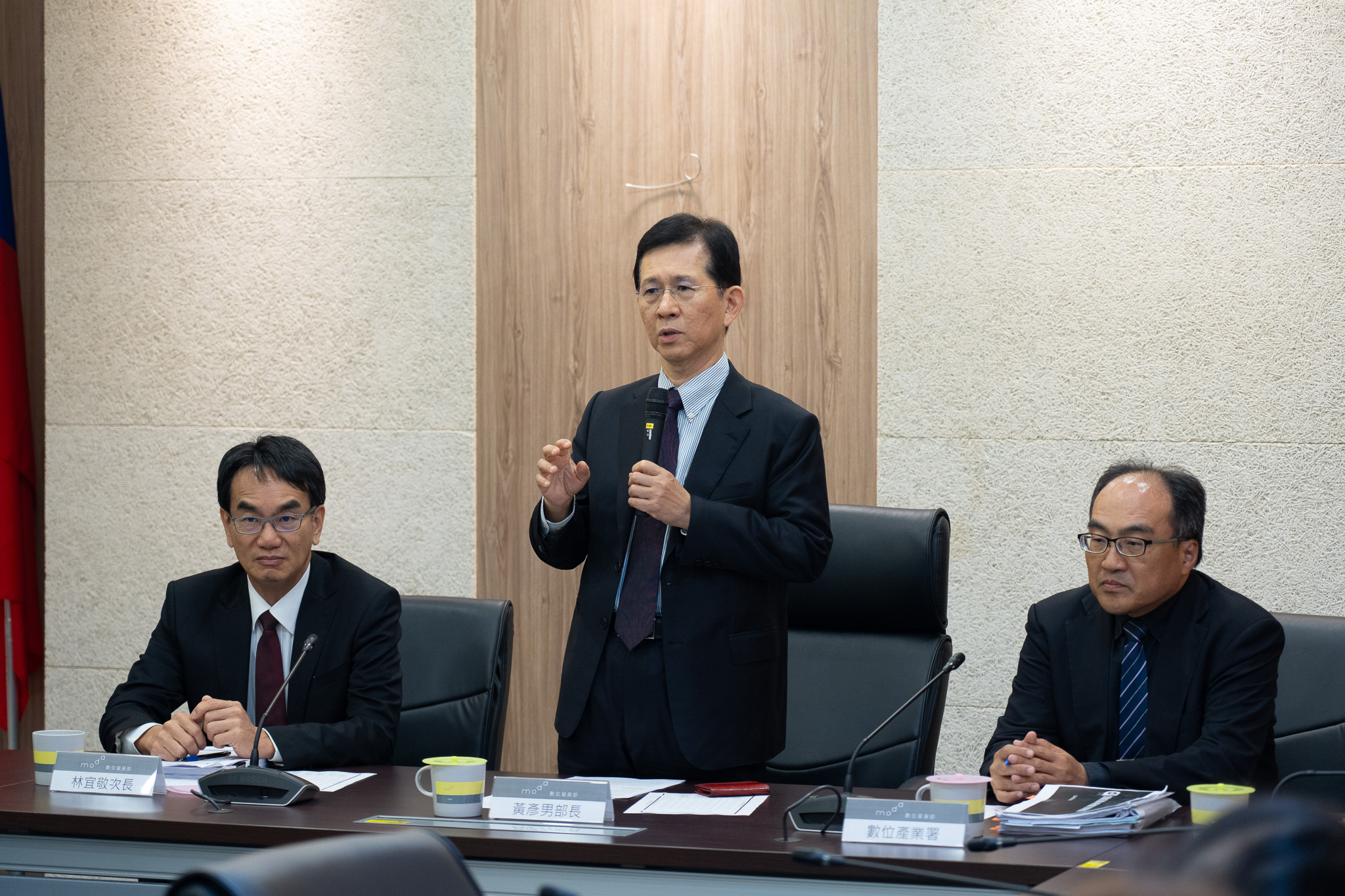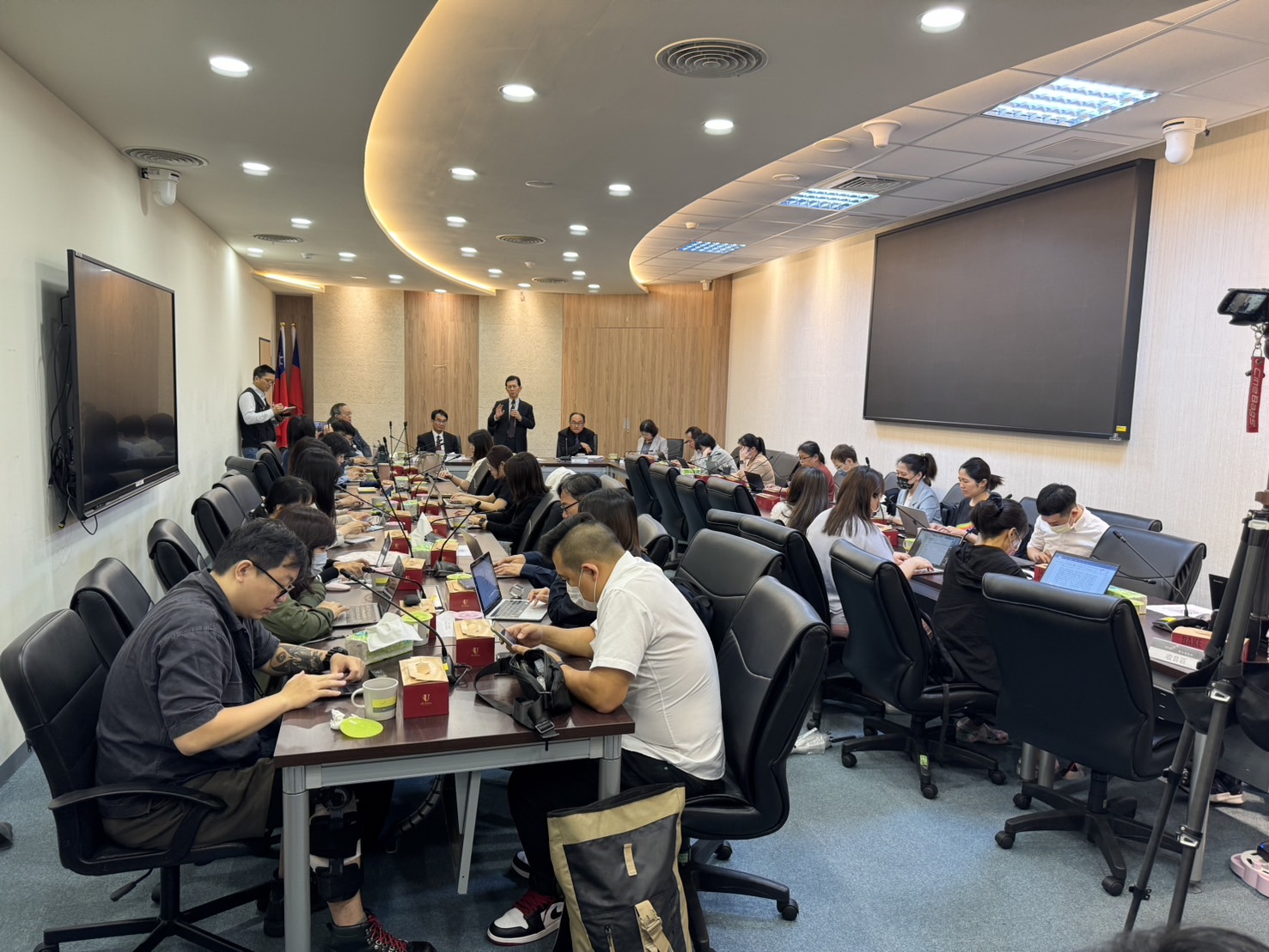Minister Huang Unveil the three arrows for Digital Development: Anti-Fraud, Digital Resilience, and Digital Economy
The Ministry of Digital Affairs held a media briefing on May 28th, during which Minister Yen-Nun Huang unveiled the three arrows for Digital Development. Minister Huang stated that the ministry will concentrate on "Combating Fraud," "Enhancing Digital Resilience," and "Developing the Digital Economy," ensuring both security and advancement while promoting nationwide digital transformation.
Minister Huang stated that scams are the primary concern for the public. Therefore, the first arrow is to reduce the Ministry of Digital Affairs's overseas travel budget and increase the development and implementation budget to fight against scams and frauds. The ministry plans to establish an "Anti-Fraud Reporting and Inquiry Platform of the Ministry of Digital Affairs," applying AI to combat misinformation generated by AI, enhancing the public's awareness and alerting of fraudulent messages. The second arrow targets strengthening the resilience and cybersecurity of Taiwan's communications network and preventing large-scale communication disruptions caused by cyberattacks or natural disasters—the last arrow pivots into steering digital economy development. The ministry will intensify support and investment in the digital sector, particularly in AI, software, and cybersecurity, expecting to list them as Taiwan's new trillion-dollar industries by 2026.
Minister Huang highlighted the ministry's primary responsibilities, including promoting the information security of nationwide communications, fostering the development of digital industries such as the internet and communications industries, coordinating digital governance and infrastructure, bolstering digital economic growth, and accelerating national digital transformation. The core philosophy is to use digital tools to enhance "national digital resilience," which ensures speedy recovery and adaptive response to adverse impacts, and learning from these experiences strengthens the nation's digital framework. By addressing societal inclusion, industrial development, and emergency response, the ministry aims to connect "citizens" and "technology," enhance "industry" and "security," and facilitate smooth digital transformation for all.
Minister Huang pointed out that the digital economy requires a secure and rapid high-speed network system. Based on the mission statement, the ministry must coordinate with relevant ministries to design, construct, develop, and manage this digital economic highway. This network must feature high security and cyber resilience, providing the necessary techniques and tools for government digital transformation while allowing industries to foster new digital economic opportunities.
Further explaining, Minister Huang said this digital economic highway integrates 4G, 5G, 6G, satellite, fiber optic, and microwave communication technologies to ensure network resilience and safety and foster emerging digital economy industries. The ministry will establish legal regulations and install network monitoring and defense systems to prevent criminal misuse, such as fraud, cyberattacks, spreading misinformation, and stealing sensitive personal data.
Drawing an analogy, Minister Huang compared the role of the Ministry of Digital Affairs to that of the Ministry of Transportation and Communications, which plans and maintains the nation's transportation systems. The Ministry of Transportation and Communication plans routes, interchanges, and stations to meet industrial and public needs and makes traffic regulations to manage safety, the Ministry of Digital Affairs will enhance digital infrastructure and support legal enforcement efforts. However, maintaining and completing the infrastructure and relevant services requires cooperation between different ministries.
To accelerate governmental digital transformation, Minister Huang announced initiatives to train civil servants in AI applications, introduce AI and digital signature tools, and establish the T-Road data security channel to promote a paperless environment, thereby increasing administrative efficiency.

